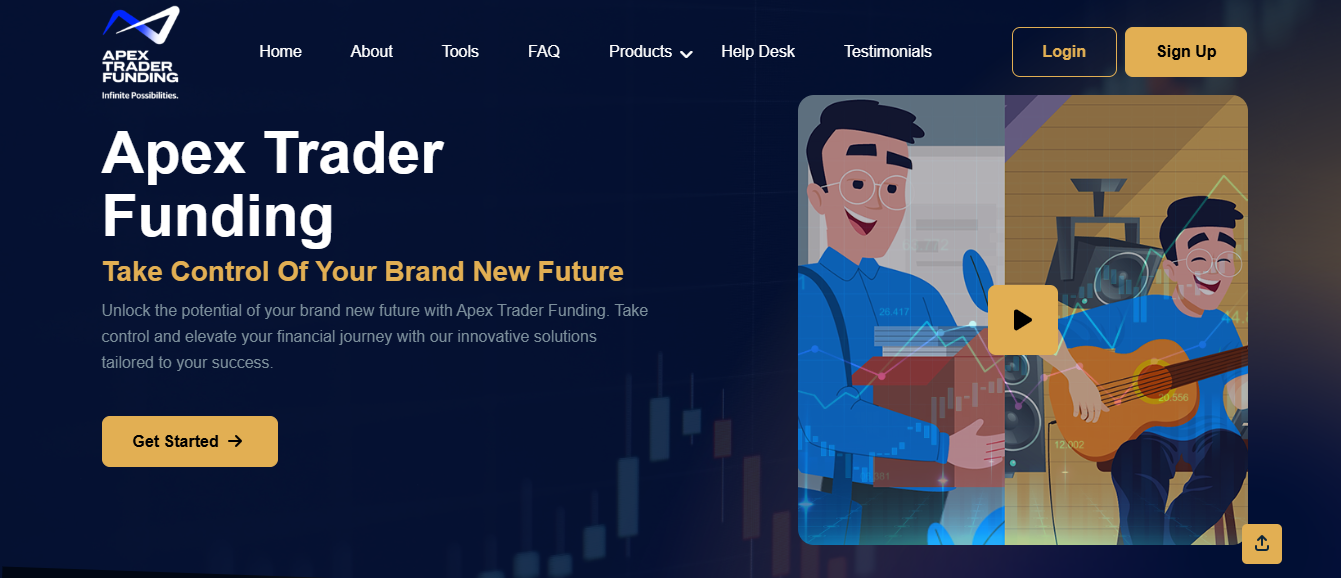DFS Marketing That Actually Works: Beyond the Basic Welcome Bonus

DFS Marketing That Actually Works: Beyond the Basic Welcome Bonus
While the DFS industry fights a race-to-the-bottom on deposit matches and free plays, sophisticated operators are building sustainable competitive advantages through behavioral psychology, community architecture, and lifecycle value optimization. The winners aren't outspending competitors—they're outthinking them.
The Bonus Trap: Why Standard DFS Acquisition Is Broken
Industry Standard Acquisition Model:
- "Deposit $20, get $20 free" welcome bonuses
- Generic sports-focused advertising during major events
- Celebrity partnerships and high-visibility sponsorships
- Volume-based affiliate programs with fantasy sports content creators
The Economic Reality:
- Customer Acquisition Cost: $150-300
- Average First-Month Revenue: $40-80
- 60-Day Retention Rate: 12-18%
- Customer Lifetime Value: $45-120
- Net Result: Most DFS operators lose money on customer acquisition
Why This Model Fails:Bonus-driven acquisition attracts deal-seekers, not engaged players. These customers exhibit:
- Bonus Arbitrage Behavior: Cycling through platforms for offers
- Low Engagement: Playing minimum required contests to clear bonuses
- Price Sensitivity: Abandoning platforms when promotions end
- No Community Investment: Treating DFS as transactional rather than social
The Behavioral Psychology Framework
Understanding DFS Player Archetypes:
The Shark (8% of users, 60% of revenue)
- Psychology: Skilled players seeking competitive advantage
- Motivation: Profit maximization through skill edge
- Acquisition: Educational content, advanced tools, high-stakes contests
- Retention: Exclusive access, VIP treatment, skill-based tournaments
The Casual Enthusiast (45% of users, 30% of revenue)
- Psychology: Entertainment-focused with occasional big wins
- Motivation: Enhanced sports viewing experience
- Acquisition: Social proof, easy-to-understand contests, beginner success stories
- Retention: Social features, progressive skill development, small-win dopamine cycles
The Social Player (35% of users, 8% of revenue)
- Psychology: Community-driven participation, group identity
- Motivation: Connection with friends, bragging rights, shared experiences
- Acquisition: Friend referrals, group contests, social media integration
- Retention: League creation tools, social features, group challenges
The Lottery Mindset (12% of users, 2% of revenue)
- Psychology: High-risk, high-reward seeking behavior
- Motivation: Life-changing jackpot potential
- Acquisition: Million-dollar contest advertising, success story testimonials
- Retention: Regular mega-contests, progressive jackpots, small-stake high-upside contests
Advanced Application:Instead of generic bonus offers, sophisticated DFS platforms create tailored acquisition funnels for each archetype, dramatically improving conversion rates and long-term value.
The Content-First Acquisition Strategy
Traditional DFS Content Marketing:
- Generic "how to play fantasy football" articles
- Basic lineup optimization tips
- Promotional content during football season
Advanced Content Architecture:
The Educational Ladder System
Tier 1: Accessibility Content
- "Fantasy sports for beginners" targeting complete newcomers
- Platform-specific onboarding tutorials
- Basic strategy content for major sports
Tier 2: Skill Development Content
- Advanced statistical analysis tutorials
- Sport-specific strategy deep-dives
- Bankroll management and optimization guides
Tier 3: Professional-Level Content
- Industry insider interviews
- Advanced modeling techniques
- Exclusive research and data insights
The Strategic Purpose:Each content tier serves different customer acquisition goals:
- Tier 1: Volume acquisition of casual players
- Tier 2: Quality acquisition of engaged players
- Tier 3: Premium acquisition of high-value players
The Authority Building Framework
Case Study: Strike DFS Content Strategy
Instead of competing with established DFS education, Strike DFS positioned itself through differentiated content:
- Stock Options Betting Education: Teaching traditional stock traders how DFS mirrors options trading
- Cross-Platform Strategy: Showing users how DFS skills apply to sports betting and stock trading
- Technology Focus: Emphasizing their unique platform features rather than generic strategy
Results: 50,000+ views and 4% engagement rate in first month, building authority in an underserved niche.
The Community-Centric Retention Model
Standard Retention Approach:
- Email marketing with contest reminders
- Push notifications for lineup deadlines
- Seasonal promotions during major sporting events
Advanced Community Architecture:
The Progression-Based Engagement System
Level 1: Individual Achievement
- Skill-based badges and achievements
- Personal performance tracking and analytics
- Customizable dashboard showing improvement over time
Level 2: Peer Comparison
- Leaderboards segmented by skill level and bankroll
- Social features allowing performance sharing
- Mentor-mentee matching systems
Level 3: Community Participation
- User-generated content features (strategy posts, lineup explanations)
- Community contests and challenges
- Expert recognition programs for top performers
The Social Proof Integration System
Instead of generic testimonials, sophisticated DFS platforms create social proof through:
- Real-Time Win Celebrations: Live feed of user victories with optional sharing
- Success Story Progression: Following users from beginners to advanced players
- Community Validation: User-voted "best plays" and strategy recognition
- Peer Learning: Advanced players teaching newer users for platform rewards
The Advanced Lifecycle Marketing Framework
Beyond Basic Email Marketing:
The Behavioral Trigger System
Traditional Triggers:
- Welcome sequence after signup
- Weekly contest reminders
- Seasonal promotional campaigns
Advanced Behavioral Triggers:
- Skill Development Patterns: Educational content based on contest performance
- Engagement Drop-off Detection: Personalized re-engagement campaigns
- Win/Loss Emotional Management: Content tailored to recent performance
- Social Activity Integration: Messages triggered by friend activity or achievements
The Multi-Channel Lifecycle Strategy
Channel 1: Email Marketing
- Personalized contest recommendations based on historical preferences
- Educational content matched to skill level and interests
- Social proof featuring similar users' success stories
Channel 2: In-App Messaging
- Real-time coaching tips during contest selection
- Social notifications about friend activity
- Achievement celebrations and progression updates
Channel 3: SMS Marketing
- Time-sensitive contest alerts based on user preferences
- Last-chance lineup optimization reminders
- Exclusive mobile-only promotions for high-value users
Channel 4: Social Media Retargeting
- Platform-specific content showcasing user victories
- Educational content targeting users who haven't played recently
- Community highlights and social proof messaging
The Economic Model Innovation
Beyond Transaction-Based Revenue:
The Subscription Hybrid Model
- Free Tier: Basic contests with standard features
- Premium Tier: Advanced analytics, exclusive contests, priority customer support
- Elite Tier: Personal coaching, insider information, invitation-only tournaments
Revenue Diversification Benefits:
- Predictable recurring revenue stream
- Higher customer lifetime value
- Reduced dependence on contest rake
The Community Monetization Strategy
- Educational Course Sales: Skill development programs created by expert users
- Coaching Marketplace: Platform-facilitated mentoring between experienced and new players
- Data Products: Advanced analytics and research tools for serious players
- Merchandise and Events: Physical products and meetups for engaged community members
The Technology Differentiation Framework
Beyond Basic Contest Platforms:
The AI-Powered User Experience
Personalized Contest Recommendations:
- Machine learning analysis of user preferences, skill level, and bankroll
- Optimal contest selection based on individual win probability
- Dynamic pricing recommendations for maximum expected value
Advanced Analytics Dashboard:
- Personal performance attribution analysis
- Skill development tracking over time
- Bankroll optimization recommendations
- Competitive positioning insights
The Social Intelligence System
Friend-Based Recommendations:
- Contest suggestions based on friend participation
- Social pressure notifications for league deadlines
- Group performance analytics and comparison tools
Community-Driven Insights:
- Crowd-sourced player injury updates
- Community sentiment analysis for lineup optimization
- Social trend identification for contrarian play opportunities
The Partnership Strategy Evolution
Beyond Affiliate Marketing:
The Content Creator Ecosystem
Traditional Approach: Pay creators for sign-up referrals
Advanced Partnership Model:
- Revenue Sharing: Percentage of long-term customer value rather than one-time bonuses
- Co-Created Content: Collaborative educational material featuring platform tools
- Exclusive Creator Contests: Special tournaments for creators' audiences
- Creator Development Programs: Support systems helping creators improve and grow
The Cross-Platform Integration Strategy
Sports Betting Integration:
- Shared user accounts across DFS and sportsbook platforms
- Cross-product promotional offers (DFS success unlocks betting bonuses)
- Integrated analytics showing performance across both products
Trading Platform Partnerships:
- Educational content showing parallels between DFS and stock/options trading
- Shared analytical tools and methodologies
- Cross-platform user acquisition through skill transferability
The Regulatory Arbitrage Opportunity
Leveraging Legal Complexity:
Geographic Specialization
- Niche Market Focus: Dominating specific states or regions with tailored offerings
- Regulatory Compliance Innovation: Superior legal processes becoming competitive advantages
- Multi-Jurisdictional Expertise: Operating across complex regulatory environments
Product Innovation Within Constraints
- Skill-Based Gaming Extensions: New contest formats that emphasize skill over chance
- Educational Product Integration: Combining learning with gaming for regulatory advantages
- Community-First Models: Emphasizing social aspects over gambling elements
The Competitive Intelligence Framework
Advanced Market Analysis:
Customer Flow Analysis
- Tracking user migration patterns between platforms
- Identifying acquisition timing and seasonal trends
- Understanding churn triggers and prevention opportunities
Feature Gap Identification
- Analyzing competitor product updates and user response
- Identifying underserved customer segments
- Finding technological or service disadvantages to exploit
Pricing Strategy Intelligence
- Real-time monitoring of competitor promotional offers
- Analysis of pricing impact on user acquisition and retention
- Identification of sustainable competitive advantages
Implementation Roadmap for DFS Innovation
Phase 1: Customer Archetype Analysis (Month 1-2)
- Analyze existing customer base to identify behavioral patterns
- Develop detailed user personas based on actual data
- Create archetype-specific acquisition and retention strategies
Phase 2: Content and Community Infrastructure (Month 3-6)
- Build educational content library targeting each customer archetype
- Implement social features and community engagement tools
- Launch behavioral trigger marketing system
Phase 3: Advanced Product Features (Month 7-12)
- Deploy AI-powered personalization systems
- Create subscription tier offerings
- Launch creator partnership ecosystem
Phase 4: Market Expansion (Month 13+)
- Explore regulatory arbitrage opportunities
- Develop cross-platform integration partnerships
- Scale successful strategies to new markets
Bottom Line: The Sustainable Competitive Advantage
The DFS platforms that will dominate the next decade won't win through:
- Bigger welcome bonuses
- More celebrity endorsements
- Higher advertising spend
They'll win through:
- Behavioral Psychology Mastery: Understanding and serving different player motivations
- Community Architecture: Creating genuine social value that increases switching costs
- Lifecycle Value Optimization: Maximizing long-term customer relationships rather than one-time transactions
- Technology Integration: Using AI and data science to create superior user experiences
- Economic Model Innovation: Diversifying revenue beyond transaction-based models
The Strategic Insight:DFS isn't a gambling business—it's an entertainment and community business that happens to involve money. The platforms that understand this fundamental distinction will build sustainable competitive moats while others continue fighting over deal-seeking customers with ever-larger bonuses.
True competitive advantage in DFS comes from creating experiences that users value beyond the money they might win—because when the game becomes about more than gambling, customers become more than just gamblers.
.jpeg)

